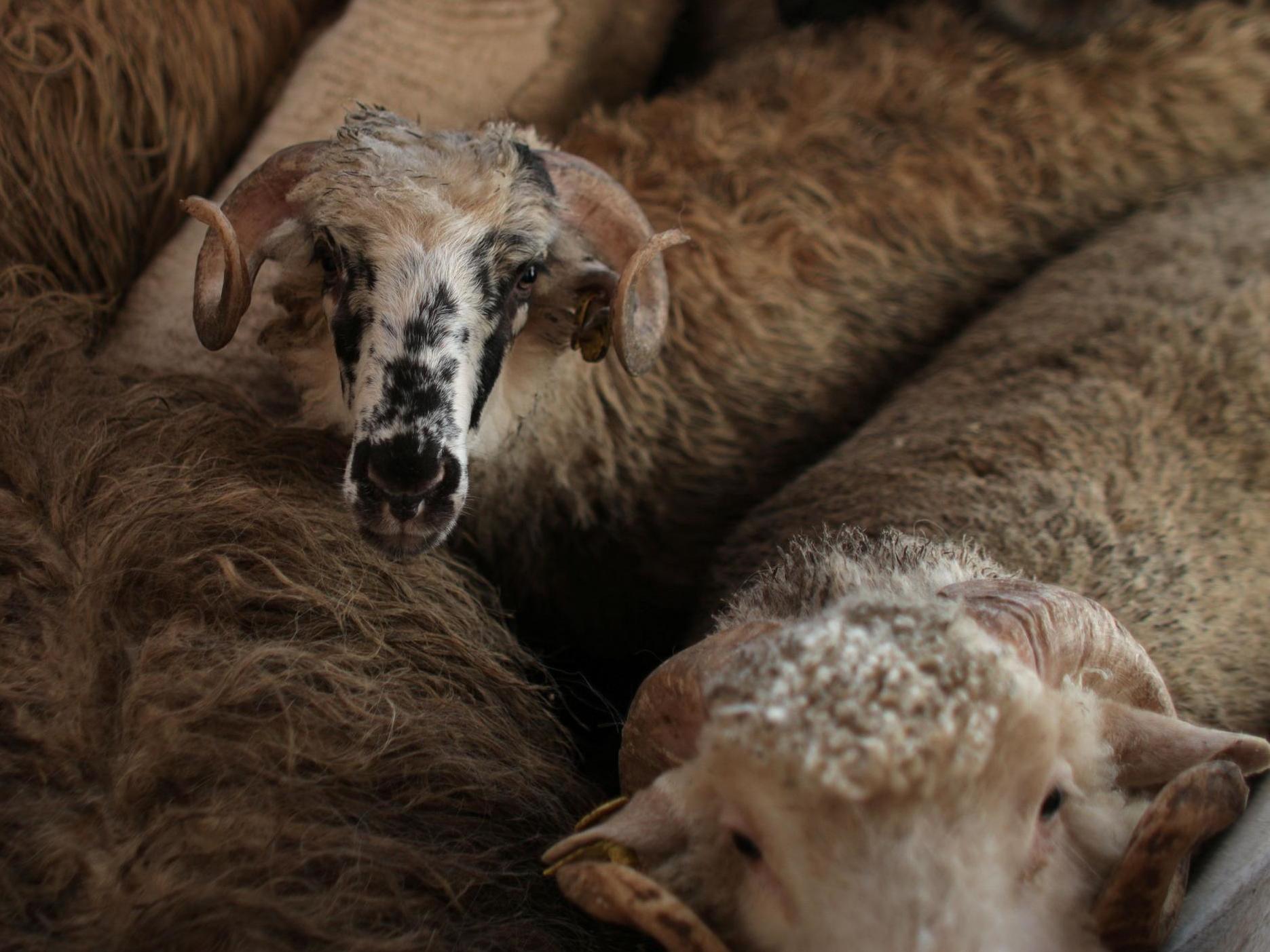Sheep rescued from capsized ship spared from being slaughtered
Last rams standing cheat death again

Your support helps us to tell the story
From reproductive rights to climate change to Big Tech, The Independent is on the ground when the story is developing. Whether it's investigating the financials of Elon Musk's pro-Trump PAC or producing our latest documentary, 'The A Word', which shines a light on the American women fighting for reproductive rights, we know how important it is to parse out the facts from the messaging.
At such a critical moment in US history, we need reporters on the ground. Your donation allows us to keep sending journalists to speak to both sides of the story.
The Independent is trusted by Americans across the entire political spectrum. And unlike many other quality news outlets, we choose not to lock Americans out of our reporting and analysis with paywalls. We believe quality journalism should be available to everyone, paid for by those who can afford it.
Your support makes all the difference.After nearly two months in limbo, the survivors of a cargo ship disaster in the Black Sea - 180 sheep out of more than 14,000 that were being transported – have arrived at a new home in the Romanian countryside.
They were to be slaughtered in Saudi Arabia but have been spared from being butchered, said Kuki Barbuceanu, president of the animal welfare organisation known as Arca.
“We didn’t save them to be eaten by somebody,” Mr Barbuceanu said on Friday, shortly after dropping them off at a farm in Peris, about 20 miles north of Bucharest.
The sheep - technically rams because they are all males – have had a rough time of it.
In late November, they were tightly packed into the Queen Hind, a cargo ship headed for Saudi Arabia. Shortly after its departure, the ship overturned.
All of the ship’s crew members were rescued but more than 14,000 sheep died. Most were trapped inside the ship and others were scattered throughout the bay, with their thick soggy fleece weighing them down.
Figuring out what to do with the survivors has been complicated and involved extensive negotiations with authorities, according to Four Paws, an international animal welfare organisation involved in the rescue.
The rams were living on the farm of the exporter, Mr Barbuceanu said. Because the exporter received insurance money for his losses, he was willing to turn the rams over to animal welfare organisations. But they needed a home.
Mr Barbuceanu contacted an acquaintance, who owns a horse farm in Peris, Romania, and agreed to host the animals. The owner does not particularly like sheep; he likes horses. Still, he was willing to help, Mr Barbuceanu said. How long the sheep will remain on the farm is unclear.
In the early stages of the rescue mission, some people offered to adopt the sheep.
“I hope they will remember and keep their wishes to have them,” Mr Barbuceanu said. “Otherwise we have to keep them till the end of their natural life.”
Given that most seem to be about a year old, that could mean tending to them for up to 10 more years.
What if someone wants to adopt them to eat them?
“No way. They cannot adopt,” Mr Barbuceanu said. Future guardians will be vetted for other suitability issues, such as financial stability, he added.
Daniel Rosca, owner of Via Transylvania Tours, said he thought that finding people to adopt the sheep might be a challenge. Mr Rosca said he thought it was “very cute” what the animal welfare groups were trying to do, adding: “But I don’t know. I wouldn’t adopt one.”
He was pessimistic because all the sheep are males. Romanian households and small farms are more likely to keep female sheep because they provide milk, which can be used for cheese, he said.
Nonetheless, the rams appeared to be in good spirits arriving at the farm on Friday, Mr Barbuceanu said. Several were limping, he said, but they will soon get X-rays.
They do have a couple of other steps before settling into their new life: first, de-worming, then castration.
“Put two rams together, they can fight and kill each other,” he said. “You can imagine how it will be with 180.”
Back in the port city of Constanta, authorities were still working on how to remove thousands of dead sheep from the harbour.
Martina Stephany, director of the Farm Animals and Nutrition department at Four Paws, said that the overturned ship highlighted the cruelties of the animal transportation business.
Around 3 million live animals are moved from European countries to other nations every year, Four Paws said. “Clearly, animals cannot be protected on such journeys,” Ms Stephany said in a statement.
The New York Times
Subscribe to Independent Premium to bookmark this article
Want to bookmark your favourite articles and stories to read or reference later? Start your Independent Premium subscription today.
Join our commenting forum
Join thought-provoking conversations, follow other Independent readers and see their replies
Comments